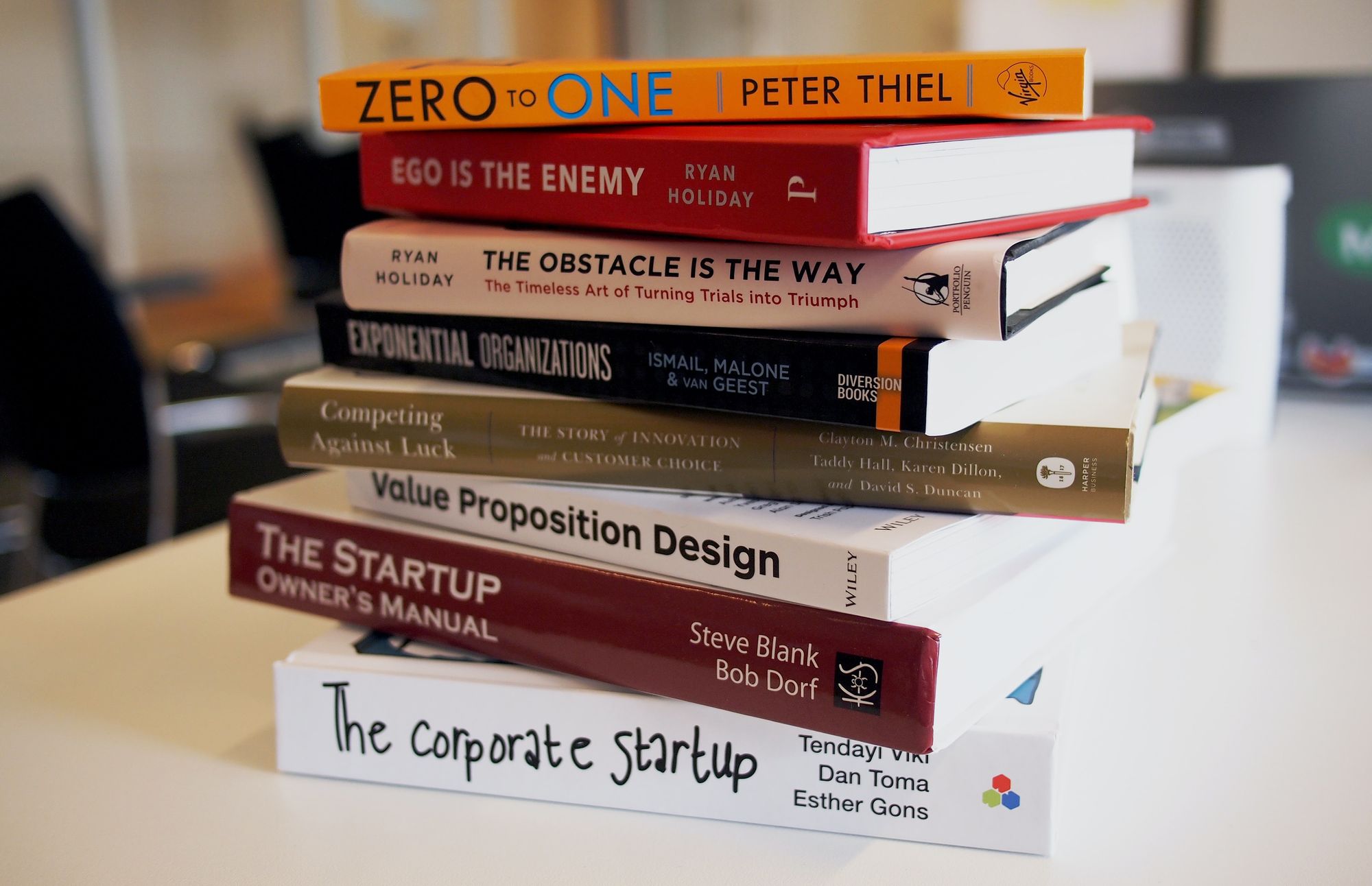Consultative Selling is still relevant and vital in today's selling climate since it serves as a foundation for establishing client trust. Sellers must introduce new ideas and insights to clients to assist them in understanding their business difficulties. Once the prospect or client is clear with his motive, the seller can aid them in selecting the best solution to accomplish their company objectives.

Consultative selling, in a nutshell, is a sales concept based on developing a relationship with the prospect customer by asking questions, listening to their needs, and tailoring your product or service for them.
A salesperson who uses consultative selling acquires a comprehensive and nuanced grasp of the buyer's needs before meeting those needs with a personalized solution.
However, simply offering ideas or suggestions does not imply that clients will be open to them or eager to invest in them. Trust is required for the client to be susceptible to the seller's ideas and competing opinions. If the trust does not establish itself early on, the seller's best ideas will stay suspect, and clients will seek out alternative providers whose ideas they trust.
Hence, this article will guide you with numerous Consultative Sales Approach strategies that can be helpful to get those prospects to trust and invest their time listening to you or even convert eventually.
What is Consultative selling?
Consultative selling prioritizes the requirements of the buyer over the needs of the salesperson. Instead of beginning with a sales pitch, salespeople engage in conversations and provide:
- Helpful and non-manipulative insights
- Advice
- The assistance that helps potential customers in achieving their goals
Consultative selling is a sales style that emphasizes connections and open discussion to understand and address a customer's needs.
It is more concerned with the customer than with the goods being sold. This strategy assists sales professionals in better understanding the difficulties that clients experience, allowing them to position their solutions more attractively and successfully.
Salespeople with consultative selling skills can position differentiated, compelling solutions. Using a consultative sales technique results in higher satisfaction and deeper ties between the buyer and supplier.
The most significant advantage of the consultative selling method is that it allows the salesman to swiftly establish rapport while presenting themselves as a resource to their prospects.
The salesperson's desire to provide valuable and essential information to prospects without expecting anything in return contributes to rapport-building. Once the seller has demonstrated their competence, the potential buyer is more likely to contact them again if they have a query or worry about that area of interest.
Consultative sales procedure
Consultative selling is a sales method that is exploratory. Instead of telling prospects what they need, you pose thought-provoking questions that assist them in identifying their pain spots. Prospects will ultimately direct themselves to the optimal conclusion using a consultative sales technique. Consultative selling has a unique procedure and is distinct from traditional selling. Below is a Framework, broken down into six simple steps:
- Arrange and Devise: Effective call planning results in more productive customer encounters, higher credibility, a shorter sales cycle, and higher sales results. Using an efficient call planning methodology helps ensure that each customer call advances the transaction.
- Associate: The connecting part of the sales call begins the encounter, makes an impression, and establishes the tone—a first solid impression aids in developing credibility.
- Perceive: At the foundation of consultative selling is understanding. Salespeople must connect with consumers to gain and maintain their openness and desire to engage in dialogue and ask a wide variety of inquiries.
- Propose: The manner in which a professional sales position a given solution might make it simple or complex for the buyer to understand. It can also make the salesperson sound either engaging or uninteresting. To be persuasive, salespeople must define capabilities and solutions in clear, concise, and compelling messaging that connects value to client demands.
- Commit: Approaching closure as a process reduces the risk of rejection while increasing the chances of acquiring commitment and winning the contract.
- Act: Improving client follow-up is one of the quickest methods for sales professionals to establish trust and differentiate themselves, as many struggles with follow-up. Following the conversation, internal reflection and action planning are required to guarantee that each customer engagement is wholly utilized in order to learn and prepare an appropriate action to win.
Skills and techniques for Consultative sales
To master consultative selling, you must first thoroughly grasp the buyer's specific needs and objectives. This is accomplished by extensive study, attentive listening without hard-selling, and developing an authentic, individualized relationship.
Leveraging technologies to perform prospect research and using automation where possible can be incredibly beneficial in consultative selling, but your most significant issue will be maintaining a real seller-buyer relationship. Keep in mind that the goal of the pitch is to make your prospect happy, not to add a sale to your bottom line.
Top Consultative Sales Approach Strategies
Let us look at some of the top sales strategies below:
#1 Devise a Pre-call Strategy
Before each call and contact, research is essential, but it is not sufficient on its own. Using the findings, encourage your team to devote time to pre-call preparation. This involves determining where the buyer is in their purchasing journey and any specific difficulties that may hinder their purchasing preparedness (such as a company or industry events). The approach should also outline the call's objectives and the specific skills and processes required to achieve those objectives.
Salespeople should include a list of consultative sales probing questions that they can ask to help identify the prospect's requirements and wants that should be included in the plan.
Probing questions are typically open-ended questions that help the prospect reveal their own goals and desires while also assisting the salesman in understanding how they may assist the customer.
Train salespeople to perform in-depth research about the contact, their sector or business, and their organization. Please make use of digital media, company websites, and third-party news and research sites to acquire as much information as possible, including the individual's and firm's history, as well as any current events affecting them.
Prior to each contact, research should be undertaken to ensure that the salesperson is up to date on current developments affecting each prospect.
The more the salesperson knows ahead of time, including recent news, the marketplace, the competitors, and any specific challenges they may be encountering, the more thoroughly they can engage the client on a high level. This allows them to gain the prospect's respect and trust, and they are therefore viewed as a resource rather than a product specialist just interested in selling them something.
#2 Conduct in-depth prospect research
Salespeople in the fast-paced sales world often get caught up in the rush of moving from one call to the next with little homework. This is a blunder. First impressions are essential, and you want to motivate your sales team's to make a first impression that is one of -competence, compassion, and relationship.
Thorough preliminary research guarantees that your salespeople can immediately contribute value to the engagement and ask deep, probing questions rather than wasting the prospect's time with easy questions that can be answered on their website.
The goal here is to learn as much as possible about the target account and prospect and have that information available in your sales dashboard.
Prospect research before approaching them can mean the difference between gaining a new client and never having your phone calls returned. Your prospect will believe you don't grasp their wants if you don't conduct any study. Here are some pointers for conducting excellent research:
- Social selling is increasingly becoming the preferred means of contacting prospects. In fact, 68 percent of B2B customers look for a solution to their problems on search engines and social media before contacting a company.
- Social selling works because it prioritizes creating relationships overselling; social platforms allow salespeople to converse with prospects while promoting their content.
- Enter "detective mode." Look for detailed information that will give insight into your prospect's issues in their role and company.
- Look for news or current event publications that discuss their company and use this to gain a thorough picture of their present situation. The stage at which you obtain all of the parameters listed below represents the point at which you are thoroughly familiar with the possibility and have all of the essential details uncovered.
- The size of the prospect's business
- Employees' number
- Their average sales volume or annual revenue
- Their typical line of products or services
- Their intended market
#3 Build trust with the prospect
Using the consultative selling strategy won't force a product or service on a potential buyer. Instead, your salesman will first inquire about the prospective customer's pain areas, short-term goals, and vision – in other words, what they genuinely want.
Before making a sales pitch, asking prospects what they want can make a big difference.
It demonstrates that you actually care about meeting the prospect's needs rather than just sealing the deal. Because you highlight the consultative in "consultative sale," the prospect is more likely to trust you and your ideas. They will not see you as a pushy marketer but as a reliable advisor.
Trust is an essential component in consultative selling. Prospects who do not trust the salesperson are less likely to answer questions, reveal difficulties, or cooperate in the discovery and problem-solving process.
Treating the prospect like a wallet and focusing solely on what you can sell them is the quickest way to lose trust. Salespeople must be prepared to treat the prospect as a person, not just a decision-maker.
They should concentrate on determining what makes the buyer tick and why in order to deliver practical advice. If the salespeople are taught to show genuine concern, sympathy, and dedication to the prospect's success, it will strengthen their trust.
Trust also necessitates salespeople following through on promises from minor aspects like delivering the agreed-upon solution.
When salespeople can be counted on to keep modest promises, it teaches the buyer that they can also be counted on to keep significant commitments.
Hence, invest in training salespeople on developing rapport early in the relationship, including understanding and employing communication styles and displaying warmth and compassion.
#4 Pose Excellent Follow-Up Questions
While having a list of questions established during pre-call planning is vital, your salesmen should not simply rattle them off like a script. This may appear to the prospect as an interrogation and does not build trust or involve them in a consultative sales technique.
Instead, teach your salespeople how to ask good questions, listen actively and thoroughly to the answers, then follow up with good, probing inquiries that probe deeper.
This more fluid conversational style is used in a consultative approach to uncover pain points and identify where and how you can help.
A response tone of asking will reveal the actual issues the contact encounters, which are frequently distinct from what the salesperson suspected and can even differ from what the customer first indicated in the first line of questioning.
Prospects are more susceptible to good consultative selling since the interaction is genuine and unscripted, and they begin to believe that the conversation itself is valuable in addition to whatever your salespeople are offering.
#5 Practice Active Listening
Unfortunately, many salespeople do not pay attention to what prospects say during a sales conversation.
To make matters worse, these salespeople frequently interrupt prospects in the middle of their speeches to promote their product or service. This will only make you appear pushy and untrustworthy as a seller.
Actively listen to what your possible client or prospect is saying.
And, as you listen, try not to think about what reaction you'll offer them once they've finished talking. Instead, strive to comprehend whatever your potential consumer says. If something is unclear, ask for clarification.
Active listening is one of the essential consultative selling abilities that your salesperson should learn.
This is because it communicates that you value the prospect's feedback and give a solution that will make a difference in their lives.
These are a few suggestions to keep in mind to improve your active listening skills:
- Distractions should be avoided during your consultative sales conversation.
- Make a list of the critical issues (challenges, ambitions, etc.) addressed by your prospects.
- To reinforce your knowledge, paraphrase what the prospect just said.
- Please don't rush the conversations; instead, allow prospective time to gather their thoughts.
- Ask a pertinent open-ended question to encourage your prospects to reveal more about their particular circumstances, issues, and ambitions.
- Please pay attention to their body language, tone, facial expressions, and other cues during a face-to-face sales meeting or video chat to better comprehend potential customers' demands.
#6 Participate in Active Problem Solving
During an efficient, consultative selling interaction, your salespeople will either discover that a prospect is not a good fit for your offering or that they have difficulties that your offering can solve.
Once trust has been created, and the conversation has progressed, salespeople should concentrate on the prospect's problems that their service can answer.
They should, however, not go straight for "the kill," but instead use the problems to strengthen their probing and advice. Sales associates should collaborate with the prospect in order to discuss solutions and uncover deeper requirements.
Assist them in determining how much those issues cost them and their organization and encourage them to see how your product can assist. The sales team should collaborate with the prospect to determine what a successful resolution would look like for them, and they should not be reluctant to offer business advice.
This means they must be trained in both business and sales to deliver sensible, trustworthy advice while also working toward offering a solution that incorporates your enterprise.
#7 Respond to Feedback
The most effective salespeople regularly assess and change their consultative selling approach and talents in real-time.
This necessitates salespeople being aware of each prospect's verbal and nonverbal cues and adapting their approach in real-time based on those indicators.
Being exposed to the concept of conversational styles, as defined by the DiSC profile system, can be very fruitful while communicating and perceiving verbal/non-verbal cues from the other end.
Dominance (D), Influence (I), Steadiness (S), and Conscientiousness (C) are the four personality styles that comprise the DISC model of behavior as we know it today. The DISC model is a solid yet fundamental tool for understanding people. The DISC system gives a framework for understanding how different people prefer to communicate and engage.
Salespeople who have been thoroughly trained in DiSC communication styles may rapidly recognize which type each prospect prefers and alter their communication and interactions to accommodate those preferences.
This works on a deep level to create and sustain trust, making prospects more open to your salespeople's advice.
Benefits of acquiring consultative selling strategies
In the world of sales, consultative and solution are the two most misused and overused terms. It's fascinating that these two words have this distinction because, without consulting, the so-called answer is frequently little more than a typical product pitch.
Salespeople that sincerely embrace consultative selling get numerous rewards, including:
- Increased revenue as a result of improved closure ratios for new clients and increased business with existing ones
- Competitive advantage from a sales strategy that is well-linked with market needs
- Access to new and more extensive opportunities inside existing clients as a result of uncovered unacknowledged needs
- Reduced sales cycle length as a result of driving momentum and increasing buyer confidence to commit
Consultative selling is a sales method that is exploratory. Instead of telling prospects what they need, you pose thought-provoking questions that assist them in identifying their pain spots. Prospects will ultimately direct themselves to the optimal conclusion using a consultative sales technique.
Limitations in the implementation of consultative selling
Now that we have understood what consultative selling is, it's essential to acknowledge that it is challenging to break away from the habit of traditional selling as sales associates.
Even if you do, it's effortless to slip back into it. Especially when you know your product can solve the pain points of your prospective client.
However, as already established, here's a summary to justify the need to let go of the traditional selling approach:
The sales team becomes pushy
Traditional Salespeople will provide you with what he has available without fully understanding the buyer's or Prospective Customer's requirements. He will endeavor to accommodate the consumer based on his availability. This becomes irritating for a large number of people.
On the other hand, a consultative seller will comprehend the buyer's or prospective customer's needs. The consultant will request time to return to the buyer with solutions that meet his requirements. This necessitates an in-depth investigation on the part of the consultant. Because the buyer is making a once-in-a-lifetime purchase, every component of the requirement should be considered.
Monetary motivation and no value addition
The traditional salesperson will only consider bringing the customer to the location and demonstrating what he has. Hence, relationship building never happens. It is entirely a monetary method of dealing with clients. A buyer often turns off such things. Regrettably, the relationship is only formed after the transaction occurs, if only that happens.
Whereas, along with discovering viable solutions for the client, a Consultant adopts a Relationship Building Approach over time, in which he will try to understand the customer/ prospect thoroughly.
For example, people generally do not forget with whom they end up purchasing a home. The buyer will recall how he was treated throughout locating the ideal property for him. As a result, an aggressive approach is not required. By the time the transaction reaches its conclusion, the consultant will have become a buyer's friend.
Dependency on success and inability to handle rejection
Being part of a sales team, each one should know, rejections would be there until you leave this position. Along with that comes harsh comments or being turned down by the prospects; often, it is rude. However, taking such things personally can profoundly affect your potential and confidence.
Typically, salespeople take the traditional selling approach because it does not allow the sales team to think, reflect and listen while conversing with the prospect. It is just bombarding the prospect with the scripted questions or imposing the product right after the prospect picks up the call. Hence, such calls either go in vain or receive negative feedback from most of the calls.
On the contrary, consultative selling will always understand the customer's purchasing cycle and respond accordingly. The consultant will maintain contact as a friend. He will try to improve the buyer's understanding of buying the product/service at various stages of the purchasing cycle.
By the time the prospective buyer has narrowed down their options, they will be better positioned to make an informed judgement about the market dynamics. A consultant will continue to present options until the buyer chooses one more suitable for his needs. This way, the buyer would have enough opportunity to decline the offer as the seller will be open to rejection and won't be pushy or imposing with his offering.
How to implement consultative selling
This isn't always the most straightforward path to take for sales executives and their teams, but the benefits can be spectacular. To be more consultative, the sales team needs to understand that a consultative sales strategy's success is measured by your impact on customers, the outcomes they achieve, and their success.
Instead of emphasizing your features and benefits, you center your messaging on this data. You never treat a customer as though they are a number. Instead, you see yourself as a reliable advisor. Here are a few things that may help you to go forward with consultative selling and not fall into the traditional selling pit as it is very likely:
Ensure being a trusted authority
It would help if you placed yourself as a trusted authority to succeed as a consultative seller. It would help if you also were trustworthy to your employer and coworkers. Make sure that your prospects see you as more than just a salesperson.
Back it up with evidence and supporting
You should always have evidence to back up your ideas and statements, whether during a sales meeting, a phone conversation, or something else. For instance, if you claim to have served multiple delighted clients, provide some testimonials with your presentation.
If you want to be regarded as a credible authority, you should strive to become an expert in your field. Please make sure that the specialty you choose resonates with your prospects and fits their demands.
Take comments respectfully
You want to demonstrate that you value all comments, favorable and unfavorable and that you wish to respond to all issues made by anyone. Please keep in mind that replying to criticism may not make everyone happy. However, it will truly demonstrate that you genuinely care.
Be the lead in the conversation
To be a great consultative seller, you must learn how to strike a balance between leading a conversation and gathering critical information from the prospect. As a result, you must ask pertinent questions at the right time and provide acceptable responses. Understanding your prospect's needs is critical in consultative selling. As a result, you should begin your conversation with a prospect by asking a lot of questions. Asking the right questions is critical to providing the most effective solutions.
How Can Deskera Help You with Sales?
At Deskera, the team understands that the sales process is essential for your success. They will help you formulate your marketing and sales strategies according to the product or services you offer. Using Deskera CRM can be quite beneficial for you as you will be able to track your sales lead in the best possible way.
Deskera CRM is a simple, fully-featured platform that can help you with contact and deal administration, sales pipeline management, email marketing campaigns, to name a few. You can generate leads for your business by creating email campaigns and view performance with detailed analytics on open rates and click-through rates (CTR). Deskera CRM is an easy-to-use platform that will assist you in contact and deal management, sales pipeline, email marketing campaigns, customer support, and ticketing management, to mention the important ones.
It will also assist you with real-time updates about your business like cash flow status, customer satisfaction, inventory management, sales, purchases, purchase orders, customer tickets, customer satisfaction, managing leads, revenues, profit, and loss statements, and balance sheets.
Key Takeaways
You don't need a sales gimmick or approach to get more business. You'll need a tried-and-true sales process backed up with perspective—a combination of skills, mindset, and insights that provides buyers with more value. And, once you combine all of the above, consultative selling is what comes out.
As a sales representative, your role is to be sympathetic and helpful, providing prospects with the information they need to make an informed purchasing decision. Consultative selling is in clear disparity as opposed to transactional selling. Transactional selling is only concerned with meeting revenue targets. While consultative selling is concerned with meeting revenue targets, it does so through assisting customers in succeeding. And it's the difference between life and death.
With a consultative sales strategy, success is measured by your impact on customers, the outcomes they achieve, and their success. Instead of emphasizing your features and benefits, you center your messaging on this data. Maintaining a strong client focus throughout the entire process is the key to successful consultative selling. This focus results in a win-win situation in which the buyer feels helped resolve their problem, and the supplier acquires a loyal, long-term consumer.
Related Articles













